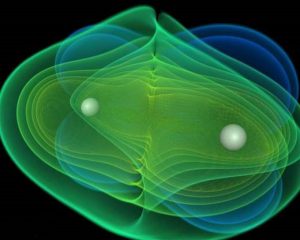 Hybrid Workshop: While this workshop is offered in-person, participants have the option to attend talks virtually. Please indicate in your registration form if you will attend this workshop in-person or virtually under the “Participant Category” field. Both in-person and virtual participants will receive instruction on how to participate a couple weeks prior to the workshop. Please note that remote participation is subject to technological constraints that may limit interaction with speakers and other participants.
Hybrid Workshop: While this workshop is offered in-person, participants have the option to attend talks virtually. Please indicate in your registration form if you will attend this workshop in-person or virtually under the “Participant Category” field. Both in-person and virtual participants will receive instruction on how to participate a couple weeks prior to the workshop. Please note that remote participation is subject to technological constraints that may limit interaction with speakers and other participants.
Computational relativistic astrophysics and numerical relativity face a number of challenges following the first detection of binary black holes and binary neutron stars: high Lorentz factors, strong and dynamical gravitational fields, uncertain equations of state, magnetic fields, radiative and dissipative effects, large dynamical ranges, solutions of constrained hyperbolic systems. The likely gravitational signals produced after the collapse of massive stellar cores offer unique probes of the dynamics of newly-born compact stellar remnants. Predicting source dynamics of future detections of gravitational wave signals is important to understand the physics of these events in the current and next-generation earth-based gravitational-wave detectors and essential to achieve design sensitivity in future space-based detectors. The goal of this workshop is to bring together mathematical modelers in general relativity, astrophysicists, and experts in numerical relativity to discuss open issues to improve current approaches to build increasingly more accurate gravitational wave templates that allow to identify future detections.
This workshop will include a poster session; a request for posters will be sent to registered participants in advance of the workshop.
Hybrid Workshop: While this workshop is offered in-person, participants can also register and attend talks virtually. Register here.
Miguel Ángel Aloy
(University of Valencia)
Manuela Campanelli
(Rochester Institute of Technology)
Marco Cavaglia
(Missouri University of Science and Technology)
Philippe G. LeFloch
(Sorbonne University, Paris)
Luciano Rezzolla
(Johann Wolfgang Goethe-Universität Frankfurt)
Susana Serna
(Autonomous University of Barcelona)